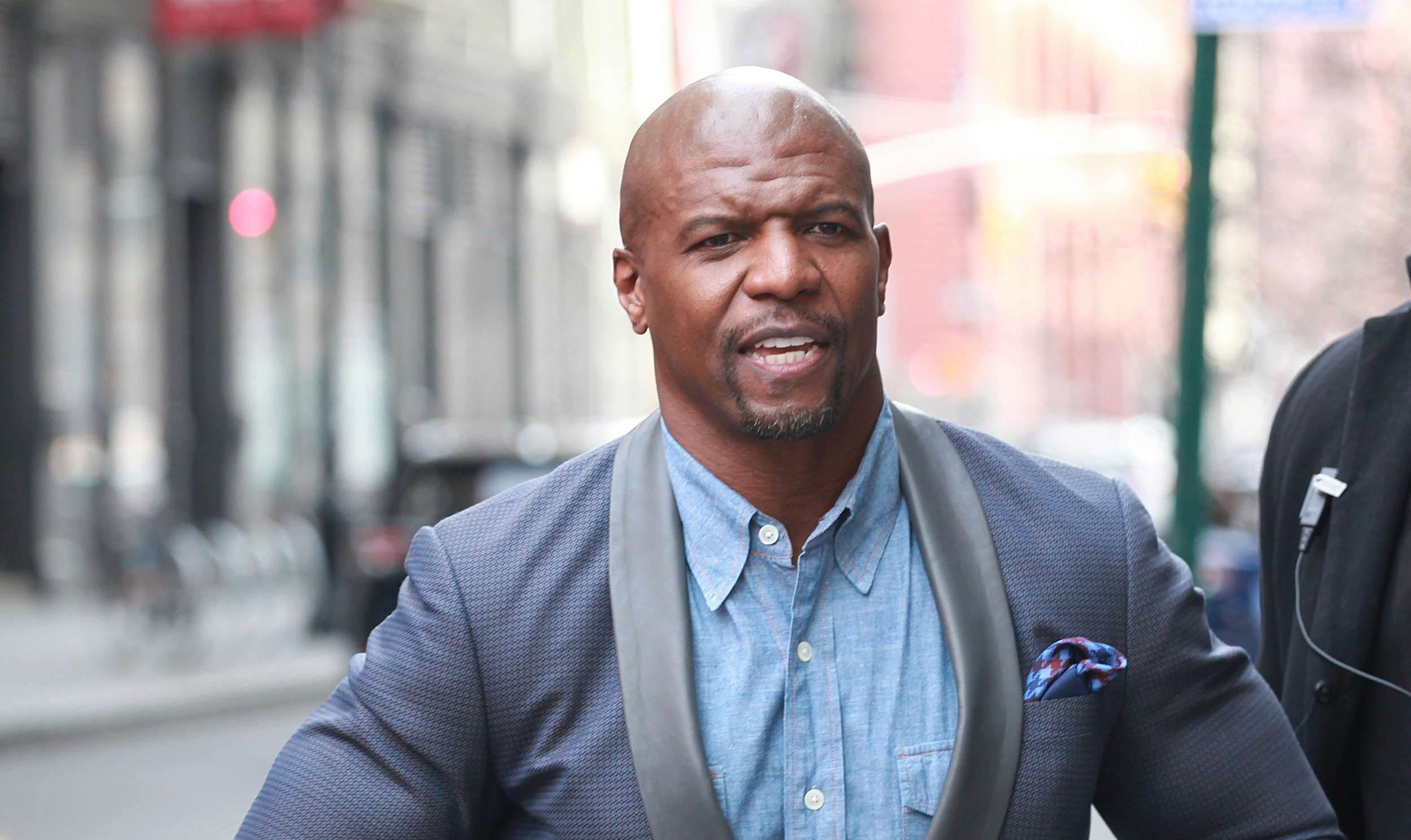Back in October, “Brooklyn Nine-Nine” star Terry Crews was one of the few famous men to take part in the #MeToo movement by bravely sharing his experience with sexual assault. He came out with his story in the midst of the Harvey Weinstein allegations because he said the movement was giving him PTSD.
A male Hollywood executive assaulted Crews in front of his wife in 2016, and he disclosed that he didn’t retaliate at the time for fear of being ostracized or misrepresented. Unfortunately justifying his concerns, people began making jokes about his assault all across the internet, emasculating him and devaluing his victimhood — all results of society’s culture of toxic masculinity.
No stranger to the culture of toxic masculinity, Crews has been outspoken about the dangers of “male pride” and the importance of men embracing their feminine sides. In 2014, he published a memoir, entitled “Manhood,” in which he discussed harmful ideas of masculinity and the demand for gender equality.
With his passion for the subject, Crews delivered a powerful speech at his Senate testimony just last week, condemning the culture of toxic masculinity. He referenced his traumatic childhood, when he watched his father abuse his mother — something he attributes to “the cult of toxic masculinity.”
He used this experience as motivation to grow up and become the opposite of his father, which meant being aware of pervasive gender roles, breaking the cycle and rising above it. In his testimony, Crews also called for a disruption of power dynamics in society, as well as The Sexual Assault Survivors’ Bill of Rights legislation to be passed in all 50 states to ensure equal protection for all men, women and children.
Since his testimony, Crews has received even more backlash from the public. Many have been discrediting his experience, using his gender as a punchline for jokes about victimhood.
Most famously, 50 Cent recently posted about Crews’ experience, making jokes about his assault. He posted — and eventually deleted — a meme of Crews shirtless, with the caption “I got raped / My wife just watched,” among other similar posts making light of another man’s trauma.
To this, Crews replied publicly in a powerful tweet, making yet another point that his victimhood does not in any way lessen his masculinity. Sexual assault knows no boundaries, gender or otherwise, and without brave and prominent voices like Crews’, men who have suffered in similar situations might never come forward.
Why didn’t you say something?
I did.
Why didn’t you push him off?
I did.
Why didn’t you cuss him out?
I did.
Why didn’t you tell the police?
I did.
Why didn’t you press charges?
I did.
Why did you just let it happen?
I didn’t.
Why didn’t you beat him up?
(Sigh)
— Terry Crews (@terrycrews) June 29, 2018
And while 50 Cent received heavy criticism for his problematic joke, he’s not the only one who finds humor in emasculating male victims of sexual assault — plenty of his followers liked and commented on his post, while many others made jokes of their own at Crews’ expense. The widespread issue of toxic masculinity negatively impacting male victims needs to be addressed.
Last week, a tweet relating Crews’ experience to another young black boy’s experience as a victim of sexual assault went viral. The victim, a 5-year-old boy, had been raped for months by an adult from his school. His single father has been on Twitter trying to raise money for legal funds to get justice for his son.
When you’re making fun of Terry Crews, you’re silencing young boys like this baby, too. https://t.co/YLNy0sv6ZG
— 𝕮𝖔𝖚𝖗𝖙 𝕶𝖎𝖒💥 (@TheCourtKim) June 28, 2018
This tweet put Crews’ story into perspective. If society raises a young boy to believe that he should suppress his experiences and traumas for fear of being mocked, something is wrong. Rape culture creates gender roles for sexual assault, leaving women vulnerable and men voiceless.
Jokes like 50 Cent’s are neither harmless nor funny. They perpetuate rape culture and toxic masculinity, and they enforce the idea that male trauma victims are weak or that male rape victims should never be taken seriously.
The barriers that society creates for male victims of sexual assault are so intense that most victims do not report their experiences. With 60,000 men likely experiencing sexual assault annually, only 12,000 are willing to come forward and report it.
On top of emasculating male victims of sexual assault, toxic masculinity presents a myriad of societal issues. It creates strict and harmful gender roles that cause men to bury their emotions and take their issues out in a more violent way — it’s even been said to be the cause of some mass shootings.
It can hinder men in the LGBTQ community from fully expressing themselves for fear of being labeled as “too feminine.” It can negatively impact men on smaller scales as well, like making them afraid to express themselves artistically or wear certain types of clothes. I’ve even heard men say certain drinks are too “girly” for them.
Major issues such as domestic abuse and sexual assault number among the many harmful ways toxic masculinity impacts women. It makes men feel entitled while women feel small, and is one of the main sources of sexism in today’s world. Toxic masculinity dictates what women wear, how they act and where they go.
So, how does society move forward without such rigid gender roles and power dynamics? That brighter future starts with how you raise your children. Let boys cry, wear pink or practice ballet if they want to.In that same vein, encourage girls to play whatever sports they want and aspire to any future career they can imagine.

Focus on closing the cultural gender gap to promote equality for future generations. But before children grow up, adults today have to work hard to abolish these unspoken gender rules, too. This means encouraging male friends to express themselves emotionally, and redefining what it means to be masculine in the minds of people around you.
And, of course, it means providing support for trailblazers like Terry Crews who speak out on issues that might result in personal backlash but will pave the way for a safer, freer and more equal future.

















